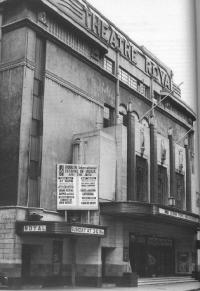
The Theatre Royal’s short 27-year lifespan (it opened in 1935) is testimony to the rapid social change and revolution in entertainment that took place during the last century. The same site had played host to the ‘first’ Theatre Royal (burned down in 1880), the Leinster Hall (built in 1886) and the Theatre Royal Hippodrome (demolished in 1934).

